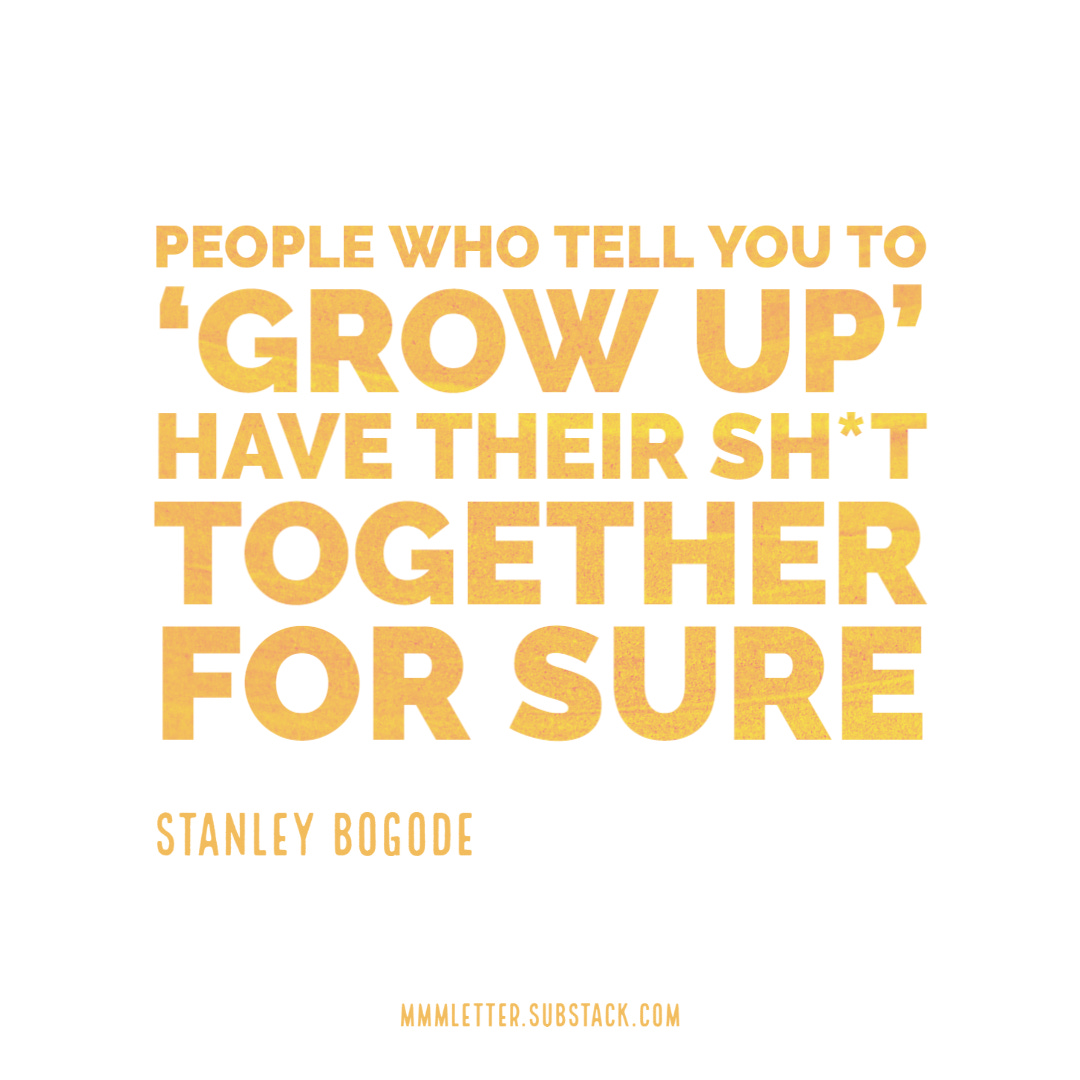It’s Dream Job, Not Dream Job Title
A bit ago, I wrote about the one stupid question we ask children: what they want to be when they grow up.
My take remains that children can’t know, nor can they predict which roles will remain around long enough for them to fulfil in the future, and the future might as well be a hundred years from the time you ask them.
I’m thinking about this again because we never really stop growing up. Well, except for anyone who demands that others grow up – those people have it all figured out for sure.
My recent career change has me at last performing the work for which I was born: copywriting, design, branding, user-experience, marketing, and leadership sprinkled on top.
This role has all the trappings of my ‘dream job,’ and yet I know I’ve missed the mark. Only recently have I put my finger on why: I have no empathy for the psychographic my organization serves; and achieving dream job status requires heaps of empathy toward your customers.
Let me back up and explain psychographics.
Psychographics
Traditionally, marketers rely on demographics because they’re far easier to target with advertisements. Demographics define what a person is or has: age, sex, location, race, homeowner.
While demographics are great advertising tools, they present but half the equation for marketers. Marketers must identify prospects suffering from a specific problem or aspiring toward a new condition.
A psychographic helps capture the desires, beliefs, and pain-points any person can experience, regardless of where they live or which college they attended. A psychographic study may reveal your customers as dog-lovers who love showcasing their pets on social media.
And a psychography may include the pain-points your audience experiences before they buy your product, e.g. they struggle to get their pets to perform for the camera.
Despite being a dog-lover myself, I lack empathy with this psychographic group. Rarely do I ever social media, and yes that’s a verb, but getting my dogs to participate is a big todo – I gave up a long time ago.
But let’s assume I’m a social media star that spends hours getting my pooch to pose for the ‘gram; I would find myself squarely pegged by this fictitious psychography. Let’s take this example further.
Imagine I get so frustrated that I invent FiPro, a GoPro attachment for dogs that records both front-facing and dog-facing views. FiPro captures your interactions with your dog as soon as you hit record and uploads them straight to your phone to edit and post on the sosh-meeds.
Feasible? Not really. But just roll with it.
As the founder of FiPro, I am in perfect alignment with the psychographic I serve because I am them. I experienced their exact problem and I found a solution for people just like myself, psychographically-speaking.
At that point, it’s a matter of discovering common demographic threads among people in my psychographic so that I may find them online and in the real-world. And presuming I have a product people desire and sufficient business acumen to pull this off, I have found a dream job.
And you’ll notice this dream job is not defined by its responsibilities, which were the talents I rattled off earlier
Dream Jobs, Not Titles
Conan O’Brien jokes that even the ice-cream taster at Ben & Jerry’s has shit days at work. It’s true because everyone experiences rough days on the job, regardless of title.
And even a dream job title, such as ice-cream taste-tester, obligates that person to menial responsibilities that could drive anyone bonkers. That job might be 30-seconds of ice-cream licking followed by 6-hours of flavor reports on Beau-Cones, the new Ben & Jerry’s variety named after my dog Beau. It’s totally a thing. Don’t google it.
I believe a dream job tasks you with applying your unique talents to help those with whom you greatly empathize. And that last part is critical, the part where you align with your customer’s psychographics.
The genuine concern you feel toward your customers prevents a shit day at work from turning into a shit week, a shit month, and ultimately, a shit job.
But a dream job is far from certain, in fact, most will live out their entire lives having never held a ‘dream job.’ Which is a-okay, we’re defined by more than our output and our role in society.
However, if you aspire to improve your working or business condition, consider your alignment with your customers and clientele. Do their outcomes matter to you?
Do you feel the way they feel about the problems they face? Have you been there, done that, and care about helping others who are there, do that as well?
If not, think about the people you want to serve. Imagine someone reached out to you for help and you jumped at the opportunity – what did they ask you for? What were they struggling with?
You might have multiple answers, but somewhere in there exists a clue that will unlock a deeper level of potential within you. Dig and you will find it.


